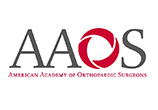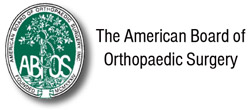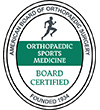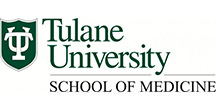SLAP Tear of the Shoulder
A SLAP tear is an injury to the labrum, the cartilage rim that surrounds the socket of the shoulder joint. SLAP stands for "superior labrum anterior and posterior," meaning that the tear occurs at the front of the upper arm where the bicep tendon connects to the shoulder.1
Metformin Reduces Knee Pain in Knee Osteoarthritis With Overweight, Obesity
Metformin was associated with significant improvements in knee pain, stiffness, and function among patients with knee osteoarthritis and overweight or obesity.
For advances in treating ACL injuries, look to dogs
In a study published April 18 in the Journal of Orthopedic Research, Cornell researchers found that the same protein accumulates in the joints of both dogs and humans after ACL injury. That means using dogs as a model to study ACL injury—and the post-traumatic osteoarthritis (PTOA) that often follows—may vastly accelerate advances in understanding.
Rotator Cuff Tendinopathy Diagnosis, Nonsurgical Medical Care, and Rehabilitation: A Clinical Practice Guideline
This evidence-based clinical practice guideline (CPG) aims to guide clinicians with recommendations covering the assessment, treatment, and prognosis of adults with shoulder pain with suspected rotator cuff (RC) tendinopathy, the nonsurgical medical care and rehabilitation of adults with RC tendinopathy, as well as the return to function and sport for elite and recreational athletes.
Understanding the Causes of Knee Pain on the Outer (Lateral) Part of Your Knee
An injury or arthritis most likely causes pain outside the knee. A doctor can determine the cause based on your other symptoms and the results of imaging tests.
What is an intercostal muscle strain?
Intercostal muscle strain is an injury affecting the muscles between two or more ribs. Symptoms can include sharp, direct pain, stiffness, and mobility difficulties.
How ACL and PCL Injuries Differ
The anterior cruciate ligament (ACL) and posterior cruciate ligament (PCL) are two major ligaments in the knee that work together to provide stability. They are also common sites of serious tears, particularly in athletes. Although ACL and PCL injuries may initially appear to have similar symptoms, such as knee instability and pain, the ligament injuries have unique characteristics that make them differ in terms of who is affected, extent of injury, and treatment guidelines.
Why do women have more trouble after knee injuries? Model explains estrogen's role
A computer model of the cellular environment inside the knee developed by UT Southwestern Medical Center researchers sheds light on why women tend to have worse outcomes after knee injuries than men. Their findings, published in Scientific Reports, could facilitate research into new therapies for knee inflammatory disorders and personalized treatments for patients with these conditions.
Q&A: How lunges, squats and holds can build stronger tendons and ligaments
UC Davis Health molecular exercise physiologist Keith Baar specializes in sports medicine. He studies the effects of exercise on bone, muscle and tendon health. In this Q&A, he discusses how intensive exercising after injury or when overweight can cause damage to ligaments and tendons. He also talks about the importance of integrating isometric or static exercises into our fitness routines.
Chronic Adaptations of the Shoulder in Baseball Pitchers: A Systematic Review
Understanding clinical and tissue adaptations to the throwing shoulder is important for optimizing injury prevention and rehabilitation programs in baseball players. The purpose of this study was to determine the chronic clinical (range of motion [ROM] and strength) and tissue adaptations of the throwing shoulder in baseball pitchers.





